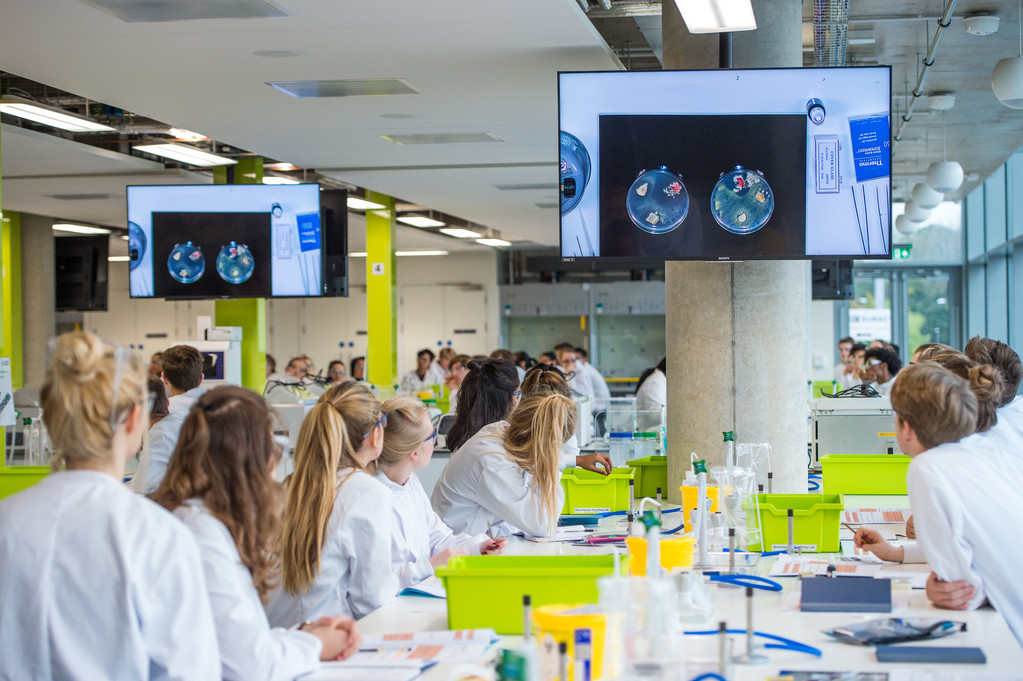“They must often change, who would be constant in happiness or wisdom.”
Confucius must have been thinking of Higher Education (HE) when he wrote this. As for so many sectors in today’s fast-moving and unpredictable world, change is our only landmark. It may be a cliché to claim that change brings challenges and opportunities in equal measure, but it’s true. The trick is knowing which one is which!!
Recent months have seen relentless pressures on the HE sector. There have been strikes, controversy, reviews and uncertainty, and the future will not be plain sailing.

Credit: Getty Images
Brexit continues to perplex us; there is greater public scrutiny of our sector; and student expectations of education in a Digital age put increasing pressure on us all. New governance of our sector, in the shape of UK Research & Innovation (UKRI) and the Office for Students (OfS), will bring unprecedented shifts, and the Post 18 Review is hanging significant questions over funding that may dramatically affect every UK university.
In my view, UKRI and OfS are two new agencies that will prove transformational in the long run for HE. This ‘new reality’ in governance came about after the Brexit vote, as a result of the Higher Education and Research Bill.
UKRI is a unified funding agency for the whole of the UK; it has already demonstrated a uniform and powerful voice for promoting science and research. Even within the short time since its inception, UKRI has helped not only to enhance the effectiveness of all our research councils, but also successfully advocated for increased investment in R&D towards 2.4% of GDP. This was confirmed in the Prime Minister’s speech of 21 May, when she announced the goal of 2.4% GDP total R&D spend by 2027. This means another £80bn new investment in Research & Innovation in the next decade, which is a tremendous opportunity! The HE sector in the UK is already a powerhouse of innovation, working with industry. Placing university research at the heart of its industrial strategy is a key part of the UK’s bid to remain prosperous outside the EU. For us at Surrey, this is excellent news: our strengths – for example, in digital technologies (e.g. 5G, signal processing, data and cybersecurity, digital economy and innovation for health) — are really well aligned with the industrial strategy challenge fund priorities.

Biosciences students in the Innovation for Health building, University of Surrey. Credit: University of Surrey.
OfS has moved away in function and spirit from HEFCE, its predecessor. OfS will rightly focus on the interests of students, particularly on enhancing student experience and outcomes, and delivering value for money for students and for taxpayers. OfS requires universities to do more for students – but hopefully the resulting happier students will feed their increasing numbers and better outcomes directly into a virtuous cycle of support for HE, and their wider benefit to society. And a happier student is the best kind to have!
Further, there has been a significant shift in the government’s attitude, and rhetoric. The landscape for international students, for example, is more positive. In October, the Migration Advisory Committee (MAC) review will probably recommend a separation of student numbers for the general immigration quota. This is a pleasing development for many reasons: according to the MAC briefing paper, a recent study by Universities UK suggests that in 2014-15 international students generated £25.8 billion in gross output for the UK economy, and that on and off campus spending by international students and their visitors support 206,600 full-time equivalent jobs nationally.
In times of upheaval and change, those who can adapt best, will prevail. So, in my view, the question is not whether these changes are ‘good’ or ‘bad’ for us – these words discourage dynamic engagement with the future. Instead, the question is: as an organisation, how should we change, and better prepare ourselves, to capitalise on all these new opportunities?
In the coming months, I’ll be writing more in-depth blogs on some major issues that are shaping and shaking up our sector. Let me know what YOU would like to hear about, and stay tuned!
